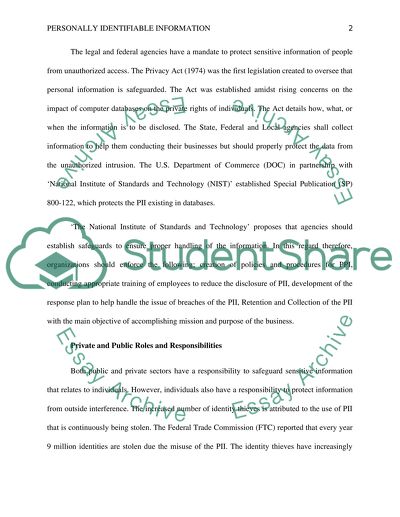Cite this document
(“Personally Identifiable Information (PII) Research Paper - 1”, n.d.)
Retrieved from https://studentshare.org/information-technology/1659062-personally-identifiable-information-pii
Retrieved from https://studentshare.org/information-technology/1659062-personally-identifiable-information-pii
(Personally Identifiable Information (PII) Research Paper - 1)
https://studentshare.org/information-technology/1659062-personally-identifiable-information-pii.
https://studentshare.org/information-technology/1659062-personally-identifiable-information-pii.
“Personally Identifiable Information (PII) Research Paper - 1”, n.d. https://studentshare.org/information-technology/1659062-personally-identifiable-information-pii.


